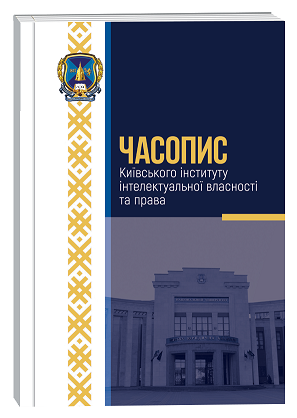FOREIGN EXPERIENCE IN APPLYING CRIMINAL RESPONSIBILITY TO PERSONS WHO COMMIT BULLYING AND MOBBING
DOI:
https://doi.org/10.32782/chasopyskiivp/2023-3-1Keywords:
bullying, mobbing, cruelty, harassment, offense, crime, victim, responsibilityAbstract
The article discusses examples of countering bullying and mobbing in countries such as the USA, Great Britain, and Spain. It is also analyzed whether criminal liability can be applied to persons who commit mobbing or bullying. The purpose of the scientific article is to study the foreign experience of criminal-law protection of a person against bullying and mobbing, as well as the analysis of the prospects for its application and implementation in domestic criminal legislation. It is emphasized that in the USA the fight against bullying is regulated at the national and local levels. The US government portal «stopbullying.gov» lists specific industries in which research is conducted on the prevention and response to bullying. In particular, it is the prevalence of bullying in schools; prevalence of cyberbullying in online spaces; how bullying affects people; risk factors for people who bully, people who bully others, or both; how to prevent bullying; how media affects bullying. In some cases, bullying appears in the criminal code of the state, and can be applied to minors. In Great Britain, bullying is equated with harassment in the workplace. It says bullying at work and anti-social behavior leading to stress is an unpleasant fact for many workers in the UK, but employers have a duty to provide a safe and stress-free workplace for all employees. Some forms of bullying are recognized as criminal offenses in Great Britain and must be reported to the police. These include: violence or assault; theft; repeated harassment or intimidation, such as name-calling, threats, and abusive phone calls, emails, or text messages; hate crimes. It is summarized that the criminal legislation of these countries does not contain separate crimes or criminal offenses called "bullying" or "mobbing", but based on the signs of criminally illegal consequences, these phenomena can be classified as criminally punishable. In particular, this applies to hooliganism, suicide attempts, attacks on life and health, hate crimes, etc. Attention is drawn to the broad involvement of the public in preventive activities in order to prevent bullying or mobbing with signs of criminal offenses. Positive experience in creating online support for victims of bullying, as well as providing informational and psychological support to such persons, is emphasized.
References
Барліт О. О. Форми і методи подолання (мінімізації) соціально-педагогічної та психологічної проблеми булінгу в освітньому середовищі. Горизонти освіти. 2012. № 2. С. 44-47.
Євдокимов В. О., Конотопцева Ю. В. Шляхи подолання мобінгу в управлінні персоналом державної служби. Актуальні проблеми державного управління. 2012. № 2(42). С. 331–337.
An official website of the United States government «stopbullying.gov». URL: https:// www.stopbullying.gov
Ведернікова А. О. Американський досвід кримінально-правового регулювання булінгу. Вісник ЛДУВС ім. Е. О. Дідоренка. 2020. Вип. 2(90). С. 90–102.
The National bullying helpline in Great Britain. URL: https://www.nationalbullyinghelpline.co.uk
Bullying at school. URL: https://www.gov.uk/bullying-at-school
Левченко Ю. О. Світовий досвід запобігання булінгу. Юридичний часопис Національної академії внутрішніх справ. 2021. № 1(21). С. 91–97.
«Let’s hope you kill yourself» – How Spain is failing bullying victims. El Pais. URL:https://english.elpais.com/elpais/2019/07/08/inenglish/1562600636_068148.html
Тімофєєва Л. Ю. Мобінг у контексті євроінтеграційної кримінально-правової політки. Держава та регіони. Серія «Право». 2019. № 3(65). С. 247–252.
Градова Ю. В., Артамонова М. Нормативно-правове регулювання булінгу: національний та зарубіжний досвід. Вісник Харківського національного університету імені В. Н. Каразіна. Серія «Право». 2019. Вип. 28. С. 34–41.
Ільїна О. В. До питання про ефективність кримінально-правової протидії булінгу в чинному кримінальному законодавстві. Прикарпатський юридичний вісник. 2021. Вип. 1(36). С. 90–93.






